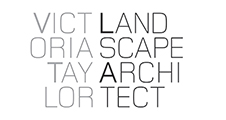Delhi park Community connections pathways project
MASTER PLAN DESIGN / PUBLIC SPACE
Delhi Park is a ~28 acre public park inextricably linked to the historic heart of Picton (pop. 4500), the largest town in Prince Edward County, Ontario. Since the 1980’s Delhi Park has been shaped by its everyday users, and by its 80 year history of landfilling Picton’s industrial and domestic waste (capped in 1979). Carved out of Picton’s lower Marsh Creek valley, Delhi Park is a landform cast over time by both geomorphic and cultural forces.
Led by the County’s Community Services, Program and Initiatives Department, the Delhi Park Pathways Project is an exciting opportunity to realize the full potential of this public park amenity for passive and active recreation through the installation of safe, accessible pathways and improved connectivity. As we build upon the pathways and park entrances, we animate the community’s relationship to place; uncovering its pre-colonial story as a portage point and trading post, and moving beyond the landfilling history to celebrate this vibrant green space along Marsh Creek to better connect a town to its historic heart at the tip of Picton Bay.
The Delhi Park Pathways Project will provide design upgrades for the network of formal and informal pathways that currently weave through Delhi Park. The informal paths we are exploring and documenting are the desire lines of movement through the park, the traces of community footsteps that tell us where connections are established and continue to be needed. We honour these footsteps as the stories of community movement over decades.
Community engagement is a key component to our process to understand how people use and access Delhi Park and to better know how we can enhance the informal connections that lead into the park for public safety, increased accessibility and enhanced recreation. Used currently by tobogganers, cyclists, pedestrians and small off-road vehicles, dog walkers, and to connect the Macaulay Village neighbourhood to Picton Main Street, our work will serve to strengthen these traditions and the park’s role as a cultural heritage landscape. Design decisions that will be key to the project’s success include surface material choices, lighting, seating, signage and wayfinding, active and passive recreation trails, and accessible grading with handrails as needed.
Funding to improve connectivity in public space is provided through Infrastructure Canada’s Active Transportation Fund.
Read more about the project here
CATEGORY
MASTER PLAN DESIGN / PUBLIC SPACE
YEAR
2023-ongoing
LOCATION
Picton, Ontario


